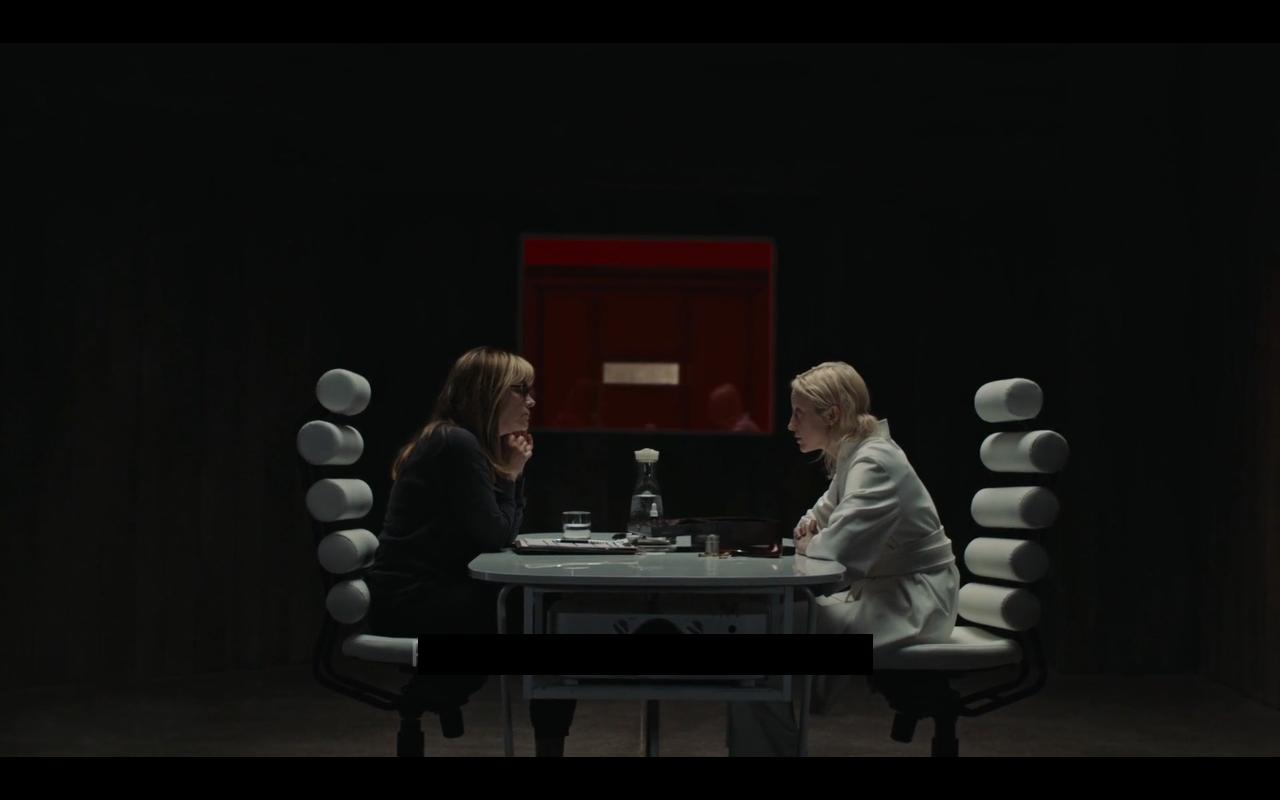The Cronenberg name has a different kind of cultural currency these days. Once immediately evocative of stomach-churning classics like Crash (not the 2004 one) and The Fly (not the 1958 one), the name has been more recently relegated to a running joke in Rick and Morty, doomed to esoteric meme fodder and beleaguered explanations from cinephiles. Though David shows no signs of returning to the director’s chair—the more risk-averse industry is apparently unwilling to fund his projects—his son, Brandon Cronenberg, is just getting started. Possessor, a horror thriller about assassins with the technology to take over people’s bodies, is his latest. Does it reinvigorate the Cronenberg name?
For gorehounds, the answer is yes. David Cronenberg must’ve unleashed his trauma onto Brandon in order to prepare him for a career in body horror. Possessor doesn’t let the potential of its concept go to waste: with assassins killing both their marks and the bodies they borrowed to get to their marks, the playing field is wide open for brutality, and inevitably awash in blood. The film has its moments of high-minded gore, but for the most part, it bathes in the simple, cathartic horror of on-screen violence, and with expected panache. Possessor’s sets are groomed to be deflowered: all sleek, sterile, and clean, and all the more scandalous when ravaged by viscera. It’s requisitely gross and a little inviting of controversy, but oddly a notch below the nastiness that the elder Cronenberg has offered. Those hoping for the exploitative thrills of Videodrome may find Possessor tepid, but for others, some scenes will surely be watched through fingers.
In between the nauseating set pieces is the story. Cronenberg’s vision of the future (or, perhaps, the present) is a libertarian hellscape: morally compromised CEOs, wielding the power and influence of world leaders, have extended the notion of personal liberty to its furthest extreme, seizing the void left by lack of oversight and replacing it with a digital panopticon of their own manufacturing. In one of its sparse worldbuilding moments, Possessor shows us an employee leering through a hidden camera in a consumer’s home just to see which style of drapes they prefer. It’s the kind of unbelievable-yet-believable detail that enriches a movie’s themes by grounding them in contemporary fears. The connotations made by a narrative of literal possession—loss of control, dilution of individuality—are connected to real anxieties over media control and subliminal messaging (concerns that doubtlessly course through Cronenberg veins).

Or at least that’s what would happen if Possessor weren’t so fatally concerned with the literal. There’s no shortage of mesmerizingly vile imagery, particularly when lead assassin Tasya Vos wages a war with the owner of the brain she’s possessing, but the script is obsessed with ensuring that even its most impossible, nightmarish images make physical sense within the story. It saps them of the metaphorical power they’d otherwise have. If viewed in succession out of context, they’d paint a phantasmagoric picture of modern disassociation; but within Possessor’s rigid narrative, they’re puzzle piece peculiarities that click together only to complete the picture on top of the box. There’s nothing wrong with downplaying subtext in favor of a literal story, but the metronomic twists and turns of Possessor only add up to an average sci-fi thriller.
To put it in terms of a tonally similar work: Possessor could be akin to Under the Skin, but instead it’s Under the Skin plus a director’s commentary that explains how the inky black backdrops are a side effect of sunlight in alien eyeballs (or something else painfully literal). The implications of the avant-garde are disintegrated. But don’t fret over the Cronenberg name: David’s second movie was also far from his best.
★★★ (3/5)




